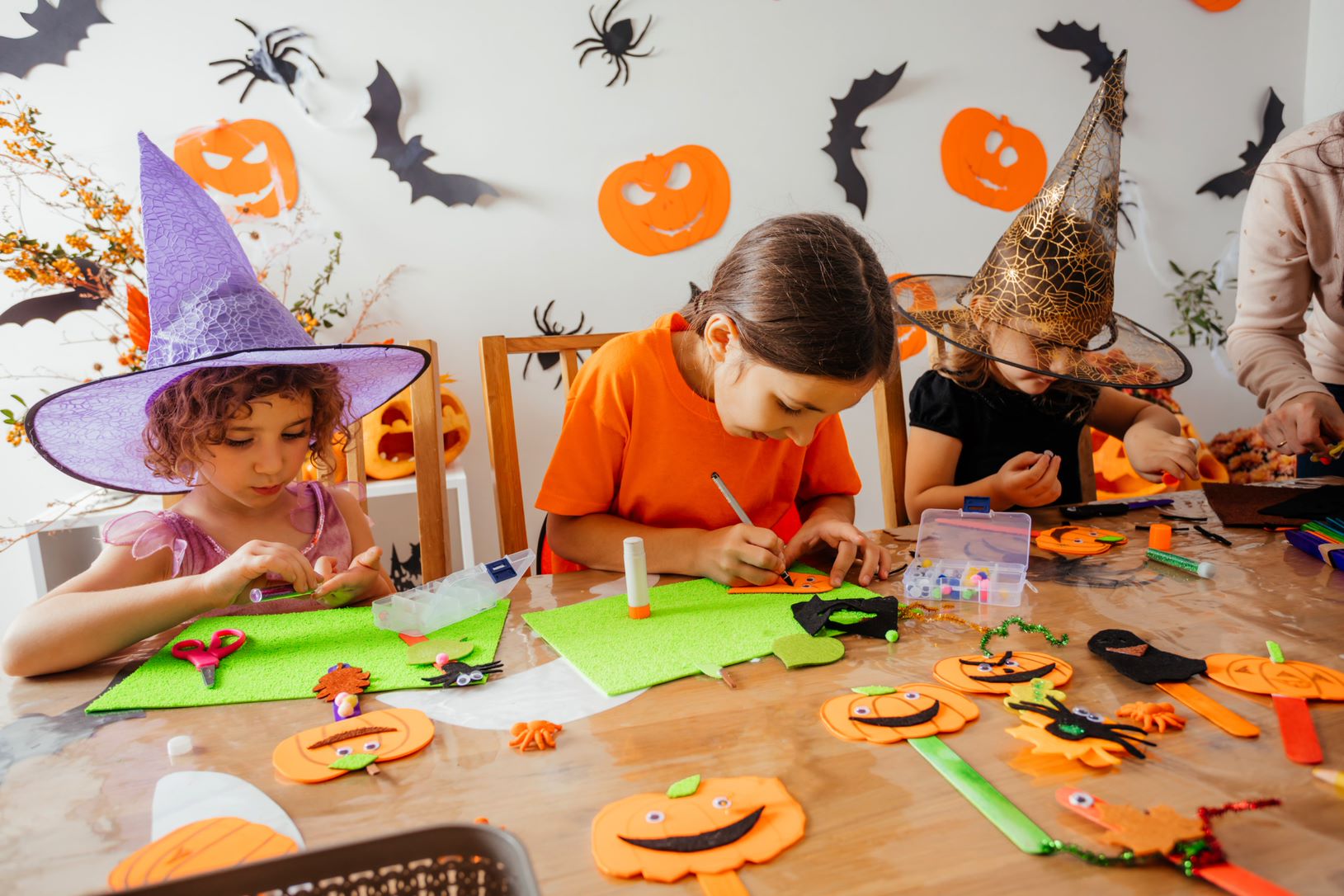Spatial awareness Extra Challenge Worksheets for Ages 4-5
5 filtered results
-
From - To
Enhance your child's spatial awareness with our Extra Challenge Worksheets designed specifically for ages 4-5. These worksheets provide engaging activities that promote critical thinking and fine motor skills while helping young learners understand and manipulate their physical surroundings. Each challenging task encourages children to explore concepts such as shapes, directions, and positions through fun and interactive exercises. Perfect for classrooms or home learning environments, these worksheets are tailored to strengthen cognitive abilities and boost confidence in young learners. Download now to give your child the perfect opportunity to develop essential skills while enjoying the learning process!
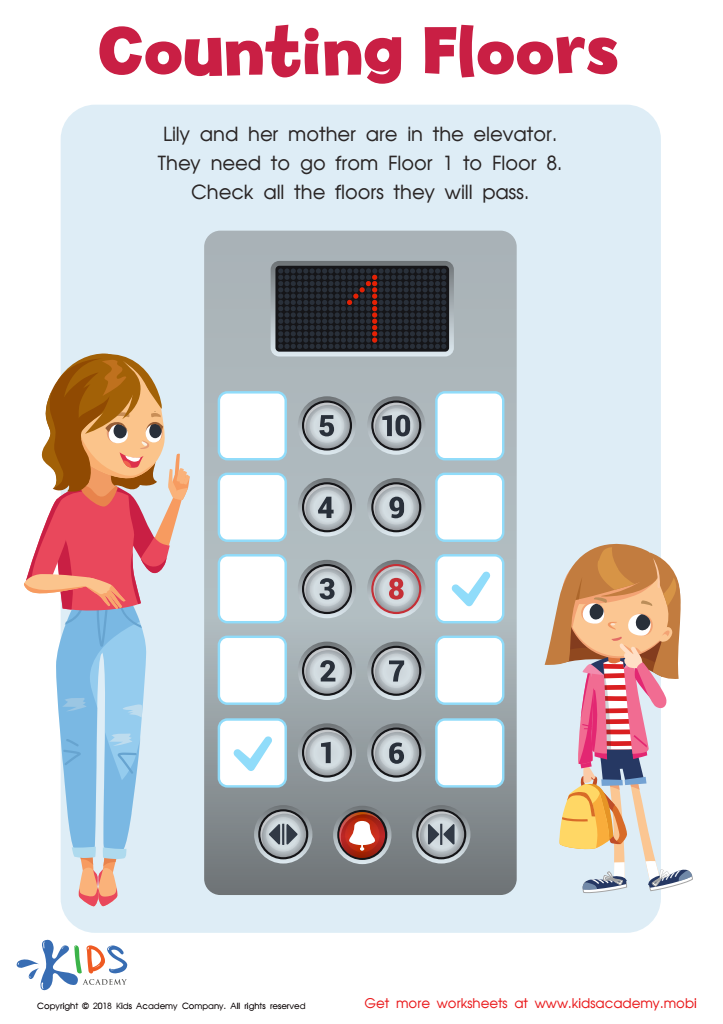

Counting Floors Worksheet
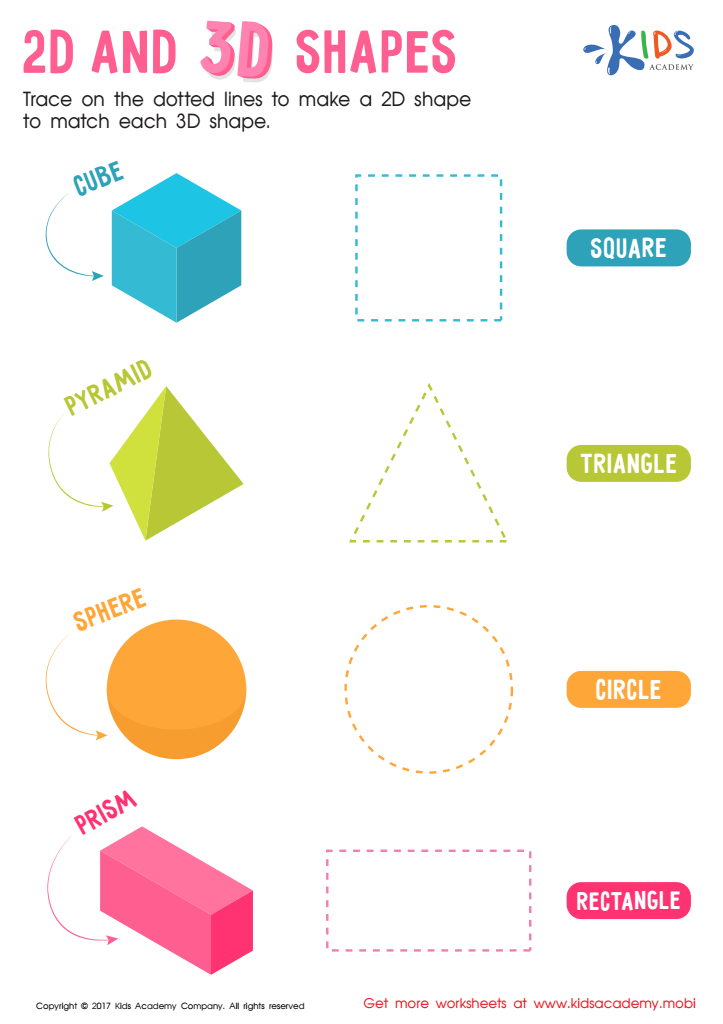

2D and 3D Shapes Worksheet
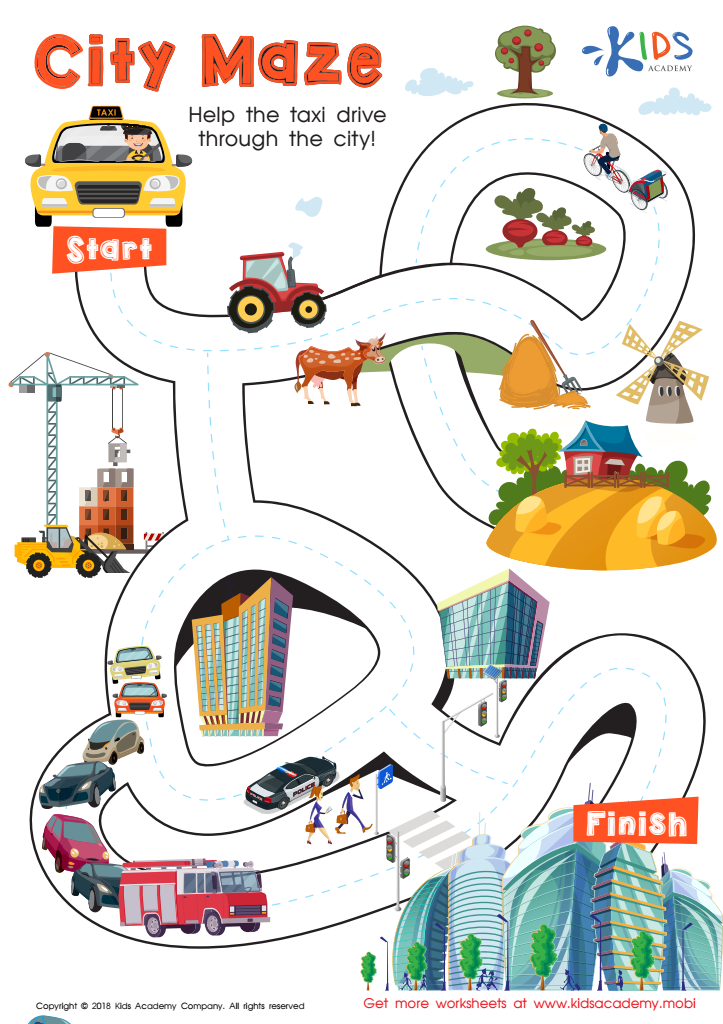

City Maze Worksheet
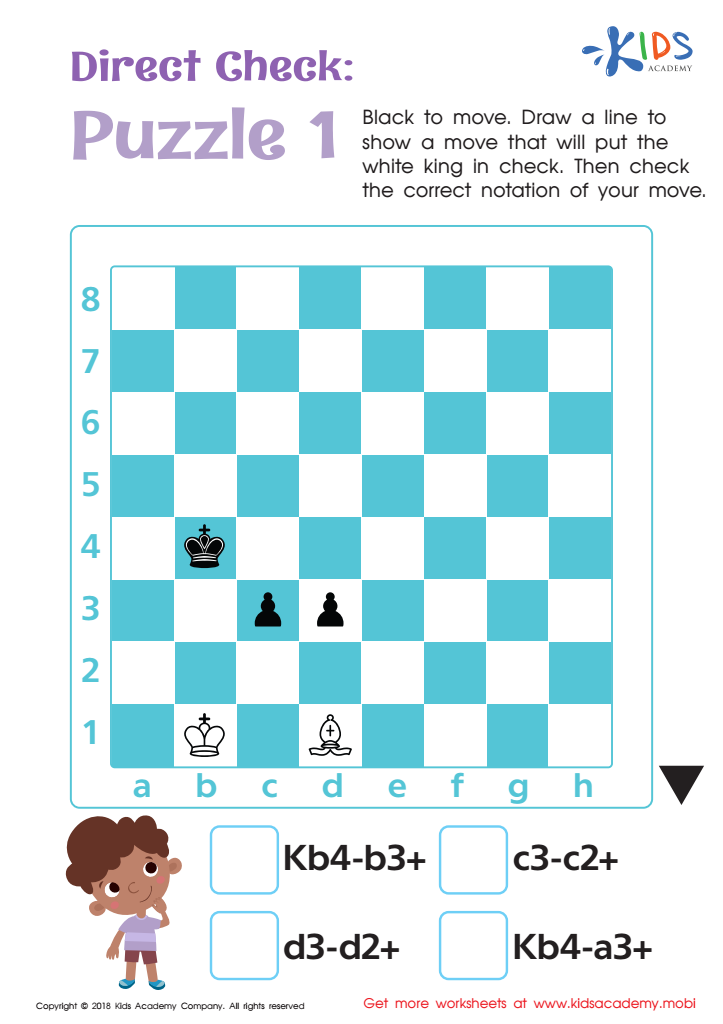

Direct Check: Puzzle 1 Worksheet
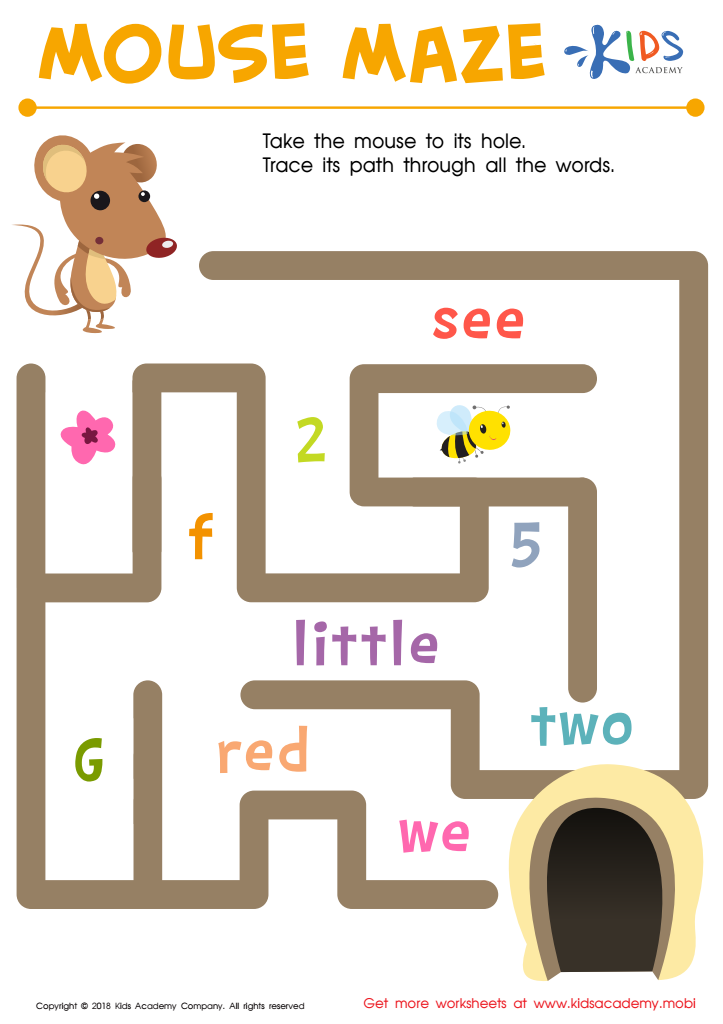

Find Words Mouse Maze Worksheet
Spatial awareness is crucial for young children's development, especially for those ages 4-5. It refers to the ability to understand and interact with the space around them. Parents and teachers should care about nurturing this skill because it lays the foundation for various aspects of learning and everyday life.
Firstly, spatial awareness is essential for success in mathematics and geometry. Young children begin to grasp concepts like shapes, sizes, and measurements, which are fundamental to their future academic growth. Engaging in activities that promote spatial awareness, such as building with blocks or playing shape-sorting games, can significantly enhance these mathematical skills.
Moreover, spatial awareness contributes to improved motor skills. Children who are aware of their physical space are better at coordinating their movements, which leads to greater confidence in activities like sports, dance, and everyday tasks.
Additionally, strong spatial awareness fosters creativity and problem-solving skills. Children learn to visualize solutions, think critically, and approach challenges from different angles.
In essence, promoting spatial awareness in early childhood not only prepares children for academic success but also equips them with essential life skills. Encouraging activities that enhance this ability is vital to holistic development during these formative years.

 Assign to My Students
Assign to My Students








